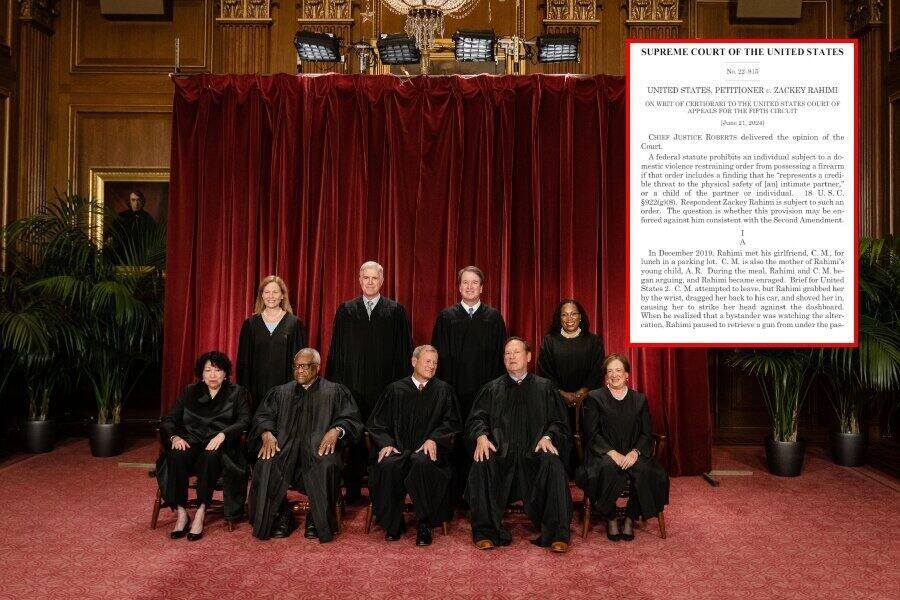On June 21, the Supreme Court upheld a federal gun control law prohibiting individuals under domestic violence restraining orders from possessing firearms, with an 8–1 vote.
The justices ruled that disarming an individual who poses a credible threat to another’s physical safety does not violate the Second Amendment. This decision reversed a lower court ruling that had struck down the federal law.
The new decision follows the Supreme Court’s landmark 2022 ruling in New York State Rifle and Pistol Association v. Bruen. That ruling affirmed a constitutional right to carry firearms in public for self-defense and established that gun restrictions must be deeply rooted in American history to pass constitutional scrutiny.
Chief Justice John Roberts wrote the Court’s majority opinion. The lone dissenter was Justice Clarence Thomas.
The case of United States v. Rahimi centers on a February 2023 ruling by the U.S. Court of Appeals for the 5th Circuit, which invalidated Section 922(g)(8) of Title 18 of the U.S. Code. This 1994 law bans individuals under domestic restraining orders from possessing firearms.
The 5th Circuit held the statute had ceased to be constitutional in light of the Bruen precedent.
The circuit court stated that the ban on firearm possession by individuals under domestic restraining orders “is an outlier that our ancestors would never have accepted.”
The case involves Zackey Rahimi of Texas, an immigrant from Afghanistan, who previously pleaded guilty to violating the federal statute.
Rahimi was involved in five shooting incidents after a restraining order was issued against him in February 2020. Following the Bruen decision, he requested a review of his conviction in light of the updated Second Amendment caselaw.
In a new opinion, Chief Justice Roberts stated that since its founding, the United States has implemented firearms laws to prevent individuals who pose a threat to others from misusing guns.
The law in question aligns with this tradition, according to Roberts. Historically, judicial officers could require individuals suspected of future misconduct to post a bond, or surety, to prevent violence, including spousal abuse and misuse of firearms.
Chief Justice Roberts emphasized that while the right to bear arms is fundamental, it is not unlimited, as established in previous rulings.
Regulations have historically governed the bearing of arms, including restrictions on dangerous and unusual weapons.
The Court concluded that Section 922(g)(8) aligns with Second Amendment principles, reversing the 5th Circuit’s decision and remanding the case for further proceedings.
Justice Thomas filed a dissenting opinion, arguing that the statute in question violates the Second Amendment.
He emphasized that the Court’s Bruen decision requires firearm regulations to be consistent with the nation’s historical tradition, and asserted that no historical regulation justifies the current law.
Thomas argued that the Second Amendment fundamentally restricts the government’s power to regulate firearms, protecting the core right to keep and bear arms.
He dismissed the government’s evidence about historical surety laws as unpersuasive and maintained that the Second Amendment’s protections extend to all members of the political community, including Mr. Rahimi.
Share your thoughts by scrolling down to leave a comment.













